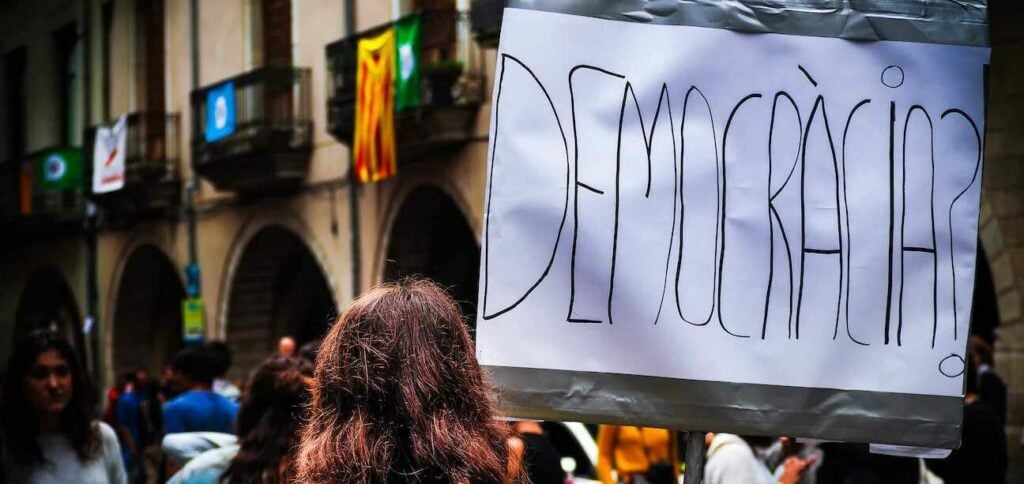On Wikipedia, Democracy is a political regime in which all eligible citizens participate equally — directly or through elected representatives — in proposing, developing and creating laws, exercising the power of governance through universal suffrage.
ADVERTISING
For Marina Slhessarenko Fraife Barreto, democracy is something more palatable and simple: It is the only political regime that gives citizens autonomy to decide on their own destinies.
“It is the only political regime that guarantees people to take charge of their own existence, in terms of political, social, economic, cultural decisions, etc…”, summarizes the USP researcher.
According to Marina, in Brazil, we live in a democratic political regime, where all citizens of age and capacity to vote decide together – through the politicians they elected – on proposals and the development of laws.
ADVERTISING
“Democracy guarantees, in terms of procedure, the possibility of continuing to choose your future. We may think that democracy, effectively and demonstrably, is the regime that guarantees greater access for people. "
Listen to an excerpt from the interview with Marina Slhessarenko Fraife Barreto from Lauft 👇
And what access does democracy allow?
Public health, education and income redistribution policies are part of a democratic regime.
ADVERTISING
“Speaking of a country with abysmal inequalities [Brazil], democracy gives the most vulnerable populations access to public policies. Citizens can even have access to public positions in a transparent way, have access to Justice, for example”.
Making an analogy, democracy is for a nation what air is for living beings: when there is no air, we die. When democracy is lacking, citizen rights die.
Listen to what researcher Marina Barreto says 👇
Shut up, journalist
“In a democratic environment there is an incentive for debate”, says Marina. For example, in Russia and Hungary – countries continually denounced for human rights violations – one of the biggest problems is that the government dominates public information and the press does not have freedom. All information is controlled by the government.
ADVERTISING
And, it says, which government is going to talk about its own frauds? 🤔
Recently, Russia closed newspapers and arrested journalists who reported true news that was not considered favorable to Vladimir Putin's government. This only happens in a country where democracy is not respected.
Putin even prevents press outlets from talking about the war in Ukraine. Can you believe?
ADVERTISING
In Brazil, a wave of attacks on the press, journalists and even research institutes is worrying. And when the press cannot be free to report what the powerful try to hide, democracy is shaken.
Warranties
In a democratic regime, we all have rights – regardless of sex, gender, age, social class or color. Only in a democratic regime does the population have transparency, guaranteed rights and access to justice.
Curto curation:
- What is democracy? (UOL)
- Democracia (Infoschool)
- What is democracy: learn in 10 minutes (Politicize!)
- Elections 2022: why the US is closely watching voting in Brazil (with the BBC)
See also:
Curto Explain: everything you need to know and are embarrassed to ask!😉
Click to see more explanatory content ⤴️








